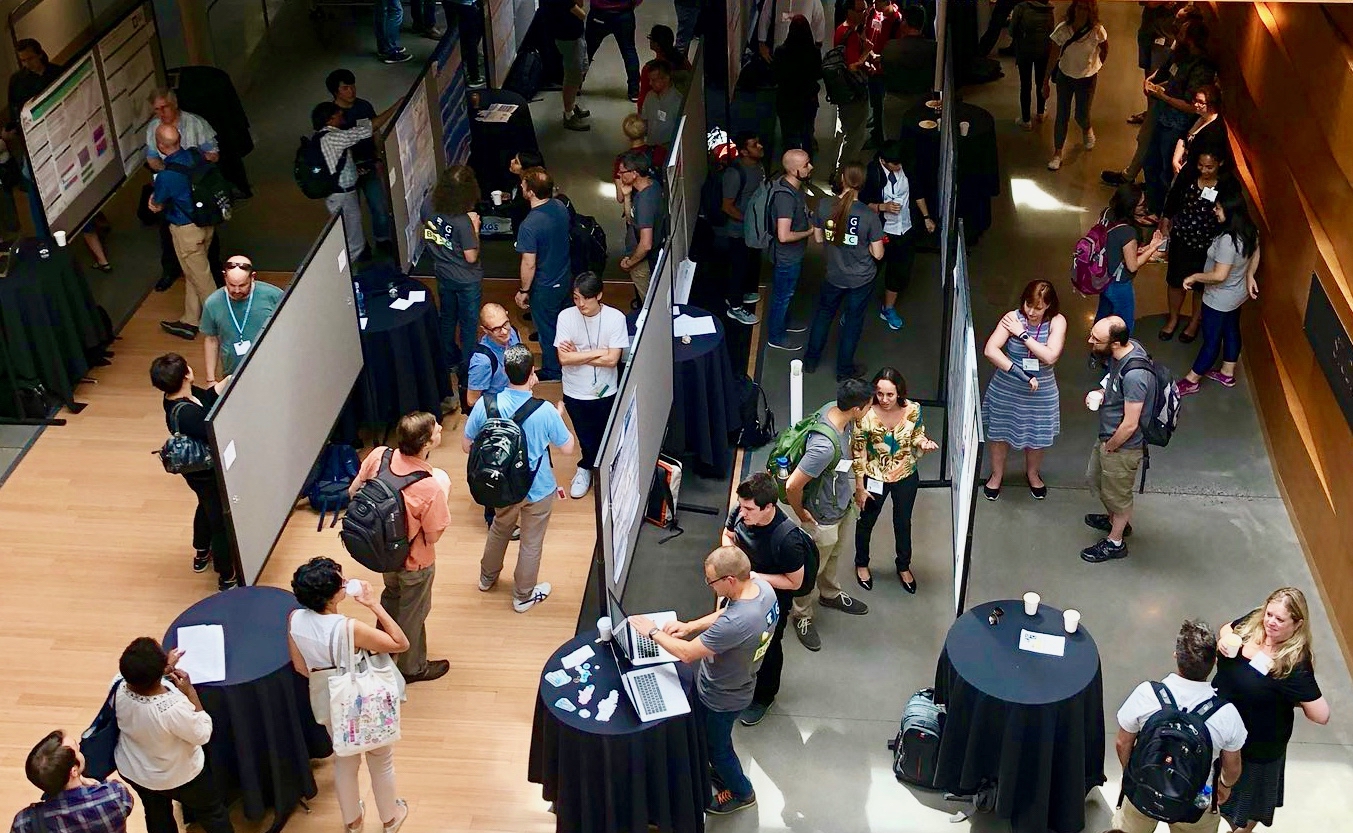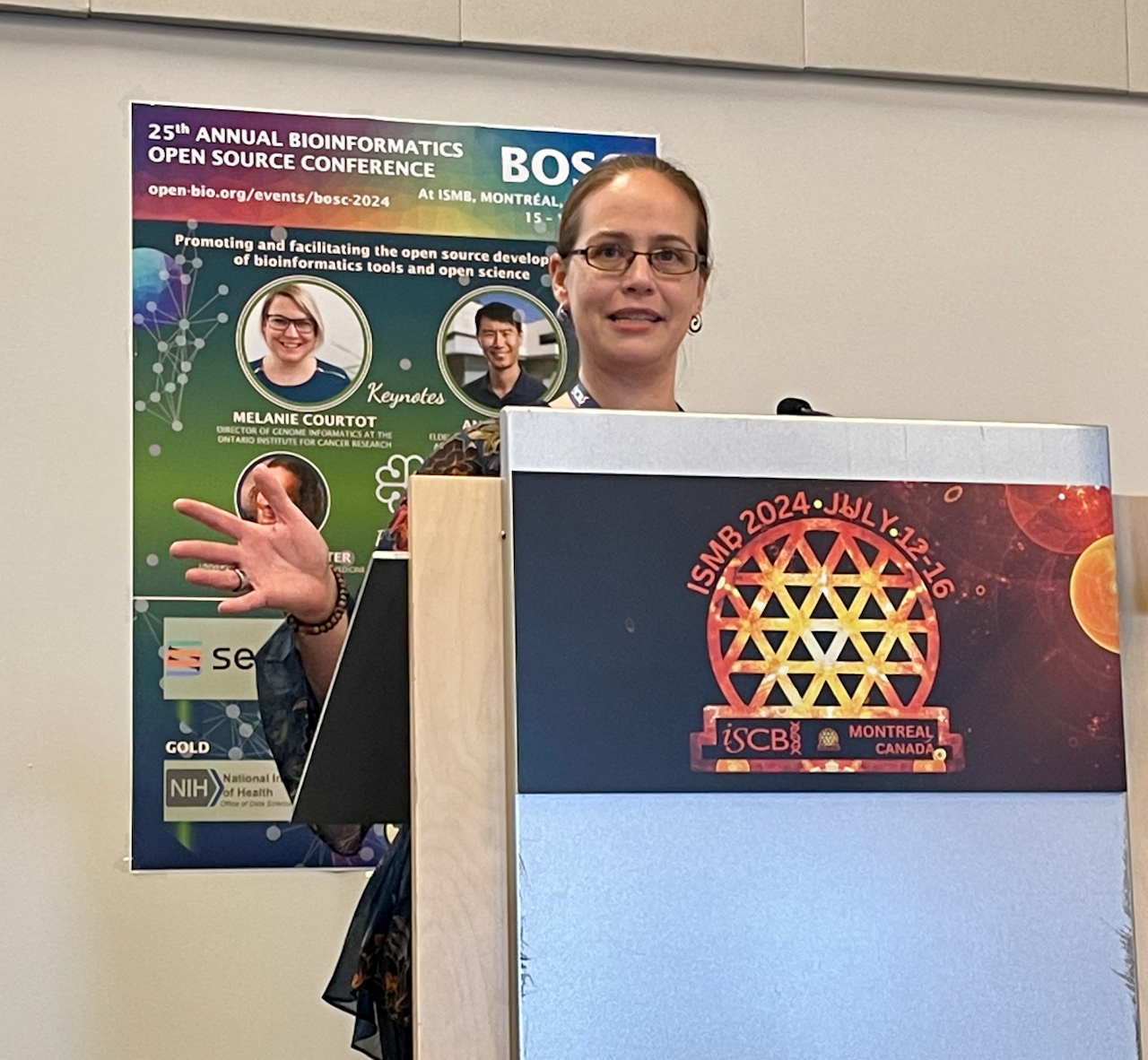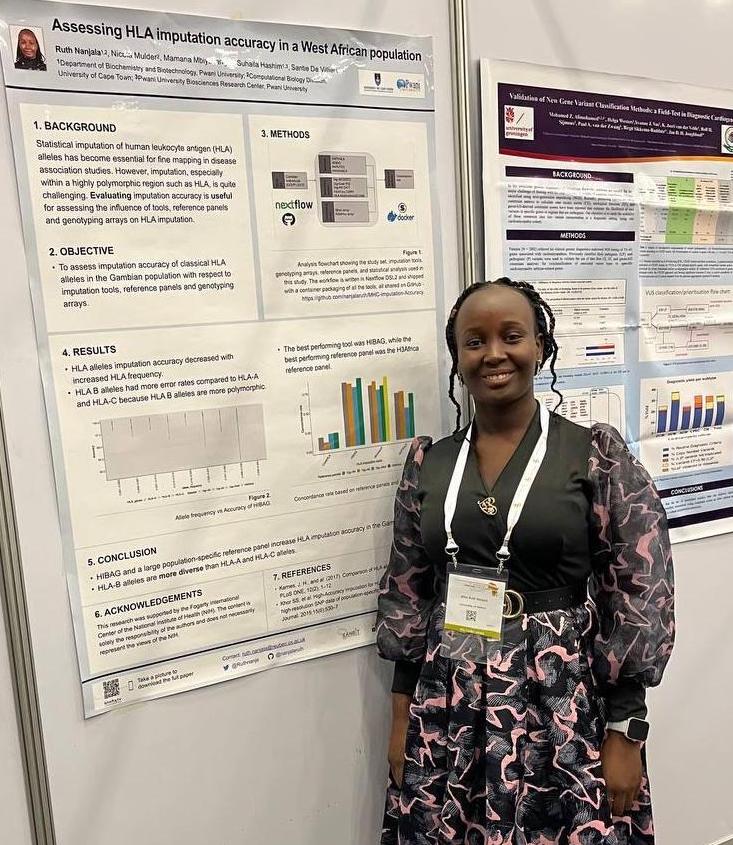O|B|F News feed is now available in Twitter! You are welcome to follow us.
Cheers, The O|B|F Admins.
The Open Bioinformatics Foundation (OBF) is a non-profit, volunteer-run group that promotes open source software development and Open Science within the biological research community. Membership in the OBF is free and open to anyone who wants to help promote open source or open science in a biological field.
OBF runs the annual Bioinformatics Open Source Conference (BOSC).
BOSC 2025 took place July 21-22, 2025, in Liverpool, UK (as part of ISMB/ECCB 2025). BOSC 2026 will be part of ISMB 2026 in Washington, DC.


The OBF Event Fellowship program aims to increase diverse participation at events promoting open source bioinformatics software development and open science in the biological research community.

Release Pumpkin Chris Fields has announced the release of BioPerl 1.6 - the first stable release in a several years containing many significant improvements and bug fixes.
I am proud to announce, on behalf of the BioPerl core developers, that BioPerl 1.6.0 is now available. This is the first BioPerl core release in the 1.6 series and is considered a ‘stable’ (non-developer) release. The distribution has been uploaded to CPAN and is available under author name CJFIELDS; it should be hitting the various CPAN nodes over the next 24 hours. A direct CPAN link is here:
[Read More]
RC4 is up, we are days away from final release…
Belated, and probably most of you knew already, but just in case you didn’t, the 2009 Bioinformatics Open Source Conference (BOSC) was accepted on Dec 16 as a Special Interest Group (SIG) meeting by the respective ISMB 2009 review committee. Special thanks and congratulations to Kam Dahlquist, who agreed again this year to chair the conference, and who pulled the proposal together.
You can follow the organization and the conference taking shape at the BOSC 2009 wiki page. Ideas, preliminary schedules, etc are discussed on the associated talk page. You are welcome and encouraged to join us there. The blurb for publicizing the event on the ISMB website is due on January 16, in a little more than 1 week. If you have ideas or would like to help, do let us know.
[Read More]The minutes of the November 2008 O|B|F Board of Directors meeting have been posted. The most important result of that meeting is that Kam Dahlquist was elected to the Board, bringing the number of Board members back to four. Please join us in extending a warm welcome to Kam!
We aim to elect additional Directors this year, please contact the Nominating Committee if you are interested in serving, or if you know people who might be. Suggestions of people we should tap to serve are also welcome and appreciated.
[Read More]BioPerl has branched for 1.6 and the RC1 is up for testing as Chris announced.
BioPerl is preparing for version 1.6 release in the coming months. As part of this some restructuring and simplification of the packaging is occurring.
We are pleased to announce the release of Biopython 1.49. There have been some significant changes since Biopython 1.48 was released a few months ago, which is why we initially released a beta for wider testing. Thank you to all those who tried this and reported the minor problems uncovered.
As previously announced, the big news is that Biopython now uses NumPy rather than its precursor Numeric (the original Numerical Python library).
[Read More]Scheduled for Nov 19, 12:30 - 2PM PST via Conference call. Please email board@open-bio.org to receive call-in information so we will know how many callers there will be.
Venue: held by conference call, starting 12.30pm Pacific Time (US).
[Read More]The OBF Conference call is scheduled for 12:30PM to 2PM PST on Wednesday Nov 19, 2008. Members of the Open Bioinformatics Foundation and those interested in the decisions are invited to listen in and participate. A brief agenda is available here.
Please email Hilmar Lapp at hlapp _AT_ gmx.net for call in number and codes if you wish to participate or listen to the discussion. Those official members should have gotten an email via the OBF members email list.
[Read More]